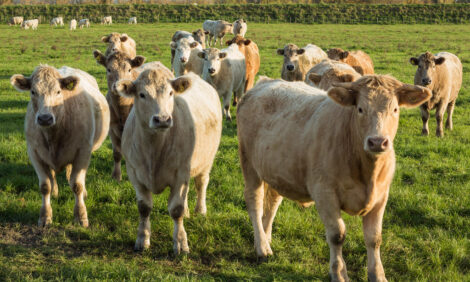



Is Milk From Cloned Animals Sold In The UK?
UK - News has emerged today (2nd August) that milk from the offspring of a cloned cow may be on sale in the UK.A farmer has reportedly told The Daily Mail that milk from the offspring of a cloned animal has gone into the milk supply chain and has being sold in UK supermarkets.
The Food Standards Agency's (FSA) has said that it will investigate this issue.
Back in July the European Parliament pushed to ban the cloning of animals for food supply, as well as the imports of cloned animals.
However, this law has still not passed.
Currently any meat or products that are derived from cloned animals or their offspring are called novel foods, and must not be placed on the market unless they have received authorisation.
The Agency said that it is the responsibility of food business operators to ensure food that they place on the market is in compliance with the law.
"As the UK authority responsible for accepting Novel Food applications, the Agency has not received any applications relating to cloning and no authorisations have been made."
Threat to health
The Agency said: "Based on the best available evidence, there are no food safety concerns surrounding consumption of products from healthy clones or their offspring. "
The European Food Safety Authority issued an opinion in 2008 which stated that: “No clear evidence has emerged to suggest any differences between food products from clones or their offspring, in terms of food safety, compared to products from conventionally bred animals. But we must acknowledge that the evidence base, while growing and showing consistent findings, is still small.”
Compassion in World Farming's Chief Policy Advisor – Peter Stevenson said: "Compassion in World Farming is extremely concerned at the news that milk from the offspring of a cloned cow may be on sale in Britain.
"The Food Standards Agency must act quickly to trace this milk and get it withdrawn from shops. The cloning of farm animals can involve great suffering. A cloned embryo has to be implanted into a surrogate mother who carries it to birth.
"Cloned embryos tend to be large and can result in painful births that are often carried out by Caesarean section. Many clones die during pregnancy or birth. Of those that survive, a significant proportion die in the early days and weeks of life from problems such as heart, liver and kidney failure.
"The European Parliament has voted for a ban on the sale of meat and milk from clones and their offspring. We call on the Coalition Government and the rest of the EU to follow the Parliament’s lead and prohibit the sale of food from cloned animals and their offspring."
Until the FSA carry out a full investigation, little else will be known.
TheCattleSite News Desk


